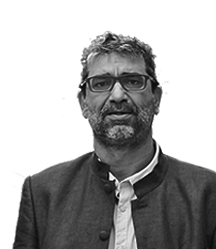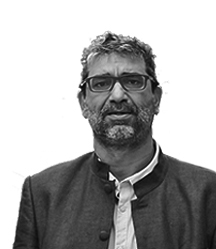
Here and there, Western heads of state make statements with an impact in their country, while on visits abroad. Even in this, Ho Iat Seng made the western bridge, going against the more traditional and reserved Chinese profile. Still in Lisbon, when summarizing the first visit of his mandate, he made what may well be the political declaration of the year. The basic idea is simple. I would even say basic: if economic diversification is not achieved…the solution lies in increasing the tax burden.
Why is a statement, in a sense so obvious, so striking at this point? Because until now the discussion has been misplaced in the public debate. If some decree the death of an imaginary Macau; others threaten the flight of shareholders if the casinos do not turn a profit; and many people still believe that the game can go back on… because China knows that it cannot sink Macau. Am sorry. Will not happen. And there is nothing like clarity, in the voice of a Chief Executive who had allowed himself to be buried behind the scenes of Covid. In the sense that no one saw him or knew what he thought.
What does Ho Iat Seng achieve with this message? First, it shifts the focus further away from the debate over security and freedoms, towards a goal that is in everyone’s best interest: low taxes.
Afterwards, he clearly announces a scenario in which the Basic Law will remain in force beyond 2049. But in a different future, without the strength of the casinos. The MSAR Budget, which today still lives off casinos, will have to find alternative industries and services. Otherwise…taxes. La Palisse wouldn’t say it better. But it is also true that we often forget this evidence. It’s not about diversification being a fad; much less if China one day gives in and lets the game roll. The question, as it is today, really cannot be changed: either the city – with all its agents – solves the equation; or pay dearly, with the end of fiscal lightness.
That said, let’s see… I’m watching us pay taxes. And tall. This is what can be said today, given the pace of income diversification that I can guess over the next ten years. Not least because the new obligations of the casinos do not, in fact, change the revenue profile.
So let’s make a deal: between rulers and ruled, to see if at least part of the path is fulfilled. Let’s try to invest, innovate, take risks; create relationships and change beliefs… but will we be able to hire people? Will we have licenses for this and that? Is there room to pressure the Government to make a better decision? Are we going to continue to pretend that those with money are going to study outside Macau?
Or are we really going to seriously discuss economic diversification, internationalization, Lusophony, Greater Bay… discuss in the sense of doing and winning.
Around the world there is always a gap between the political narrative and reality. Or rather: between the world that announces itself and the conditions often created to prevent it from happening. But at this particular time, which is right, a leader appears who commits himself to the challenge he issues. I.e; the warning he issues must also set him in his own pace. Governments don’t do everything; but they do a lot. In the specific case of Macau, as it is clear that only those who can rule, more power is now responsible for opening the doors that it itself closed – with or without Covid – enthusiastic about the cycle of national affirmation. The paradigm shift, for all reasons, has to come from the top.
The truth is that the Government of Ho Iat Seng is the same one that, on the one hand, asks for foreign investment; on the other hand, he looks at him from the side, never having shown signs of betting on the relationship with another.
Much less when that other wants to live here and multiply birs… It is not even necessary to invent. Just be consistent and bring the mindset – and its practices – closer to the narrative. Because this one even makes sense.
*Director General of PLATAFORMA



